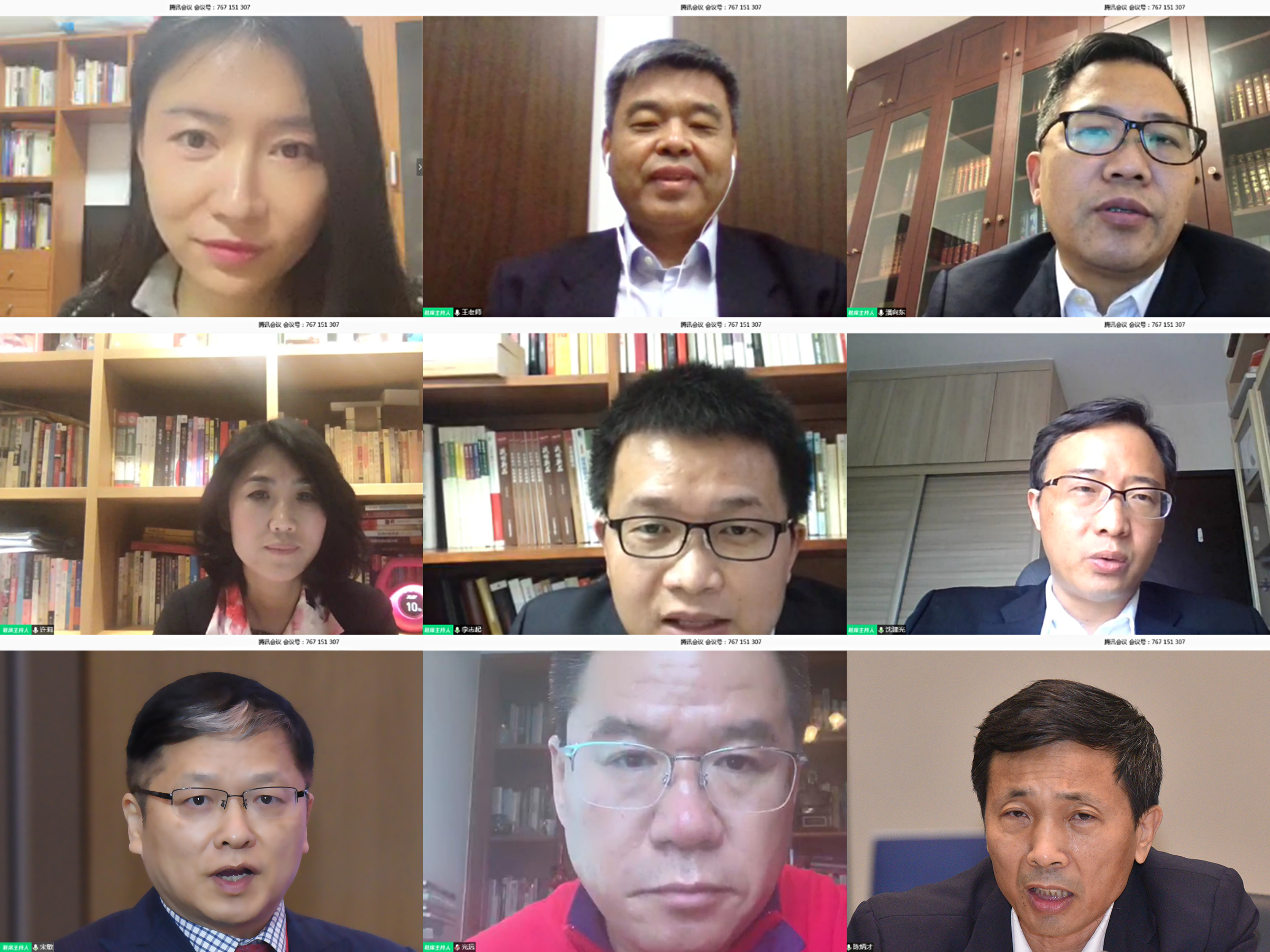HOME>NEWS CENTER>Press Releases
The 1st IFF 2020 Seminar
Impacts Brought by the Overlap of Economic Crisis
and Covid-19 Outbreak
AUTHOR:IFF
FROM:IFF
TIME:2020-03-10
On March 8th, 2020, International Finance Forum (IFF) and Unit of Green and Innovative Culture jointly organized an online seminar, with the theme Impacts brought by the overlap of economic crisis and Covid-19 outbreak.
Global economic landscape and social environment have witnessed significant variables since we headed into 2020. Either nature disasters, or economic downturn, or resulted-in social unrest does harm to global sustainable development. The Covid-19 is defined as pandemic that does not only caused important damage to human health, but also posed severe challenges to the Chinese and world economies. Questions arise against this backdrop: how to promote sustainable and green development? Will uncertainties trigger new economic crisis? How to adjust or even reconstruct global order? What is the impact on China and global economy? What China should do to tackle the new challenges? What is the new direction and new opportunities?
Meanwhile, since the world economic crisis in 2008, major economies such as the US and Europe have experienced more than a decade of continuous economic growth. According to the market economic cycle, there will be an economic crisis every decade or so. Therefore, major economics are facing a new economic adjustment. There are signs from 2019 that a new world economic crisis is on the way.
Over the past two weeks, the US stock market featured by the Dow Jones index has experienced severe volatility, suffering its biggest decline since 2008. The global capital market has experienced an unusual "dark week", which triggered the circuit breaker mechanism set up after the "black Monday" crash in 1987. At one point, Dow Jones was only about 0.1 percentage point from bear market territory, and crude oil prices briefly fell more than 30%, their biggest drop since the Gulf War in 1991.
As a result, many of the world's leading media and economists predict that the world will experience a new economic crisis. What will be the scale of the crisis? Is it an economic crisis like the one in 2008, or like the 1929-33 crisis that led to the collapse of the entire financial and economic system? What will be the impact on the world economy and China's? How should China respond in this context? What enterprises and individuals do to tackle the challenges in order to constraint the loss? What measures government should take? At the same time, economic crisis goes hand in hand with reform and reconstruction. Then what is the new opportunities and directions?
In order to explore the aforementioned important issues against the backdrop of crisis and epidemic outbreak, this seminar invited influential experts from economic, investment and corporate consulting fields in China:
Participants include: Song Min, IFF Academic Committee member, dean of School of economics and management at Wuhan University, Director of China financial research center at the university of Hong Kong; Chen Bingcai, IFF Academic Committee member, executive dean of IFF Institute, former inspector of national school of administration; Wang Yuanfeng ,vice president of Chinese society for the study of development strategy, innovation, founder of the Unit of Green and Innovative Culture, professor at Beijing jiaotong university; Shen Jianguang, vice president of Jingdong group, chief economist of Jingdong Digital Technology; Pan Xiangdong, vice president and chief economist of the New Times securities; Ma guangyuan, deputy director of the Economic Commission of China National Democratic Construction Association, journalist at Financial channel at CCTV; li zhiqi; vice chairman of the Beijing federation of Industry and Commerce and director of the Beijing Zhenghe Institute of Private Sector Development; Xu Li, Chinese Female Entrepreneur Association and Award of Outstanding Women Workers.
The online seminar only has five-day preparation but is in line with the dynamics and featured by high-quality speakers. It attracts 87 participants from government, enterprises, universities, research institutions and media in Beijing, Wuhan, Guangzhou and Shenyang. It also attracts audience and participants from the US. Liu xing, chief editor of the dialogue program of CCTV, presided over the seminar.